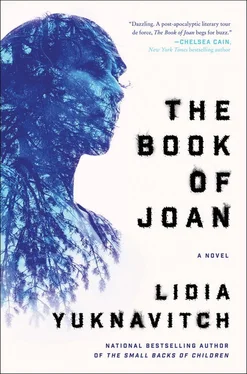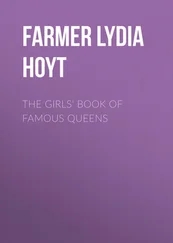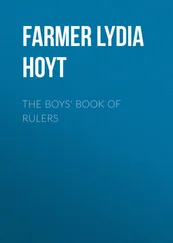Fear takes hold of children differently. Shadows quicken their becomings, and what might be the scratching of branches or the whistling of wind in leaves and needles can take on the low-pitched hum of a growl or a grunt. Birds that cheer during the day, with their colors and flight, in the darkness sound and look the same as bats. And bats seem everywhere. He was no longer cold. He was sweating. But none of the growing wood terror caught his breath like the image he came upon after climbing a small rise that felt familiar under his feet. A great crackling sound grew as he ascended the hill. Like the sound of a hundred twigs being broken. His heart clattered inside his rib cage. His hands filmed with sweat. A light seemed to glow up and beyond what he could see. At the top of the rise he breathed hard like a runner and his skin itched and something smelled wrong, and he felt light-headed, and then he held all the breath in his body.
Fire.
The forest before him lit up. Orange and white and red. He could see he was in the right place. Where he’d left his sister. Heat burned inside his nostrils, his eyebrows. He held his arm up to shield his face. “Jo!” he yelled. But he could not see her tied to any tree, and all the trees he could see were ablaze, and he saw no evidence of a rope, or the dirty knotted socks of a stupid boy, and he coughed, and smoke stung his eyes and tears wet his cheeks and his throat constricted when he tried again to call out the name of his sister. PD dropped like kindling to the ground in a pile of boy. Crying.
Slowly, the way a morning mist dips, curls, and descends on hills and around treetops, a soft cool wet fell on his crouched back. A low sound rose up from the ground that he could feel in his knees and hands, a vibration of sorts, and then the sound took shape and became a hum, like a thousand children hitting the same low note. The very night gave way to water, different from rain though—more of a full and even wetting than individual drops—and the trees were doused and the orange light slowly turned blue. Blue light bloomed everywhere. He could see the entire forest. His hands—his body—the ground and trees and everything around him was blue. A coolness evened out the heat.
Out of the blue he heard his name echoed.
He raised his head and saw his sister walking toward him, naked. She knelt on the ground and cradled his head and torso in her arms and set him up against her thighs. She wiped dirt and tears, soot and loose hair from his face. The great humming forest song crescendoed, then died down to a near silence. After, crickets chirped naturally.
“I’m sorry,” he said, nearly into her stomach.
“Listen to me,” Joan said. “Something has happened. Don’t be afraid. The earth… she’s alive.”
I’ve been drawing.
On the walls of my cell. Bodies. Huge Hieronymus Bosch–style scenarios. With the handle of the toilet I broke off. I’ve been thinking about how our desires and fears manifest in our bodies, and how our bodies, carrying these stories, resist the narratives our culture places on top of us, starting the moment we are born. It’s our idiotic minds that overwrite everything. But the body has a point of view. It keeps its secrets. Makes its own stories. By any means necessary.
When I graftstoried her youth, I’d given her a childhood based on the facts we’d all learned from oral stories passed around before the ascension, and from the fragmented videos that survived her capture, torture, trial, and burning.
The story now rose up in welts from my skin. Her childhood at my torso. Here her mother, father, brother. Her town in the small of my back. But her comrade in arms, Leone, I’d written in the terms of a beloved—Leone I wrote at my thighs and up, into the very cradle of my former sexuality.
Joan’s favorite class was science. She had been interested in the study of microbes and quantum physics, interested in the fact that they were both part of the study of string theory. The small and the large inextricably wedded for eons. Her favorite dead people were Albert Einstein and Rosalind Franklin, whom she sometimes drew pictures of surrounded by a DNA double helix. Her favorite living people were her forever friend, a Vietnamese-French girl named Leone, and her brother, PD. Although she couldn’t talk to animals, she felt more kindred with them than with people. But the world was her deepest intimate. Trees and dirt and rocks and rain, and ocean and river water compelled her almost completely.
At school she could temporarily forget the strange blue light and song in her head. Learning about the world’s geology, she could pretend that her only true relationship was to the natural world. She could ignore the fact that the thing in her head, and her parents’ increasing anxiety while watching the nightly world news, had nothing whatsoever to do with the girlhood of things.
But even at school there had been signs of things to come. Like the day a boy with hair the color of rust pushed Leone in the center of her chest so hard she fell down on the ground, her breathing went wobbly, and Joan ran to call a teacher. They took Leone away in an ambulance.
When they took Leone away, Joan went into a cement recess tunnel and cried and pulled out some of her own hair. After school, she found the boy with hair the color of rust and said “Come here.”
Unafraid of girls, he said “What?” and stepped toward her.
She put her hands on his shoulders and closed her eyes.
“What are you doing, freak?”
She felt the blue light flutter slightly above her ear, underneath her hair. Her mouth twitched slightly.
“Whatever,” he said, but she kept her hands clamped onto his shoulders like girl epaulets. He couldn’t get free.
“What the hell?” he yelled, but it was no use.
She opened her eyes just as the trees around them began to shiver, their leaves rustling off the branches in great swirls. Then the wind kicked up more than seemed normal, and the boy’s feet lifted out from under him, so that he was really pinned to the world only by Joan’s hands on his shoulders, her hair lifting up a little. She opened her eyes.
“Lemme go! Lemme go,” he’d screamed.
“Okay,” she said, and did, and he flew with the force of the wind circling them up into the air and around until she breathed out and he landed on the ground with the loud thud of a boy dropping from the sky. A leg broken. He whimpered.
Before she ran again to get an adult, though, she said to the broken boy, “Don’t ever touch Leone again or you’ll never leave the sky.”
Leone—whose small heart had a defect at birth, who carried a heart that started out in a pig. Xenotransplantation and Leone had become Joan’s favorite words. Xenotransplantation represented a change in the distance between people and animals in a way she loved. Leone represented Leone, just Leone, Leone. Sometimes Joan would spin around alone in a circle saying the beautiful word out loud to no one but her body, hands clasped over her heart, eyes closed, like praying.
Leone with long black hair reaching to the small of her back, Leone with a smile as wicked as a cracked apple, Leone with eyes like blue-green pools, Leone as strong or stronger than any boy who dared to arm-wrestle or chase or race Joan. They swam naked in clear pools in the foothills; they curled into each other’s bodies alone, next to night fires, away from adults. Leone became Joan’s idea of love.
The day Joan threw the boy into the sky and let him drop, things shifted. As adults carried the boy away on a stretcher, Joan heard him yelling, “There’s something wrong with her!” Men with grave faces and women with upside-down smiles stared at her.
Читать дальше












